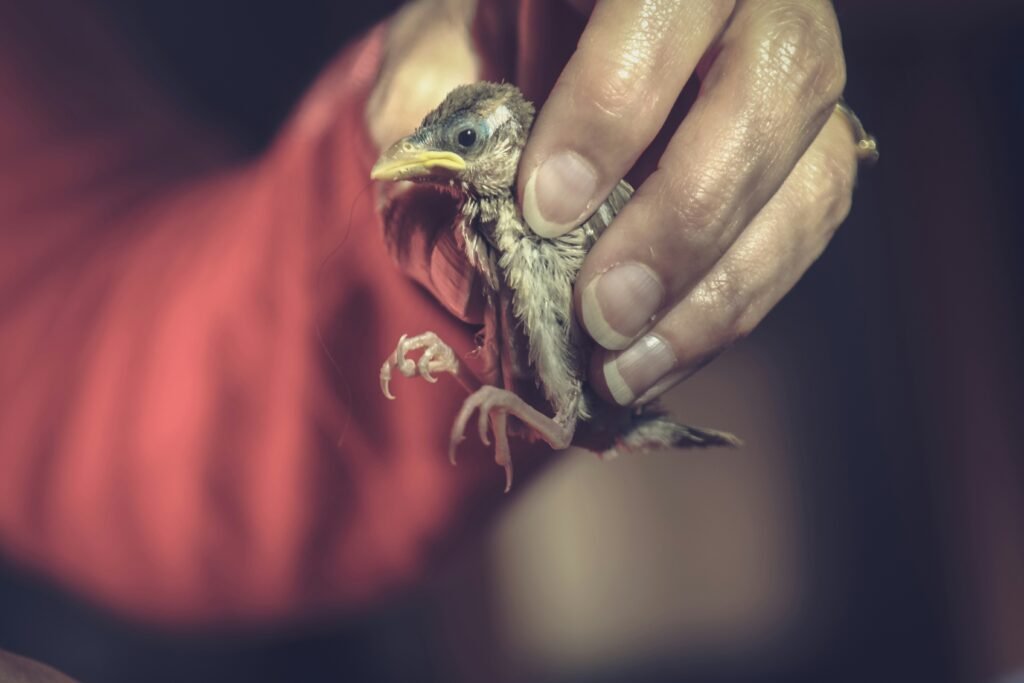If you want a happy and healthy King Doberman by your side, there’s one simple key: regular veterinary check-ups. Just like humans, our furry friends need proper care and attention to thrive. In this article, we will explore the importance of bringing your King Doberman to the vet for routine check-ups and how it can contribute to their overall wellbeing. So grab a treat and get ready to uncover the secret to a vibrant and lively companion!

This image is property of images.unsplash.com.
Importance of Regular Veterinary Check-Ups
Regular veterinary check-ups are essential for ensuring the overall health and wellbeing of your King Doberman. These check-ups play a crucial role in the prevention and early detection of health issues, allowing for timely treatment and intervention. By bringing your furry friend to the vet on a regular basis, you can address any potential health concerns before they become significant problems.
Prevention and Early Detection of Health Issues
One of the primary benefits of regular veterinary check-ups is the ability to prevent and detect health issues early on. During these check-ups, the veterinarian will conduct a thorough examination, checking for any abnormalities or signs of illness. By identifying potential health problems at an early stage, you can initiate the appropriate treatment and prevent the condition from worsening.
Overall Health and Wellbeing
Regular veterinary check-ups are crucial for promoting the overall health and wellbeing of your King Doberman. During these appointments, the vet will assess your dog’s overall condition, including their weight, dental health, and general physical fitness. They can provide you with valuable insights and recommendations on how to maintain and improve your dog’s health, such as dietary adjustments or exercise plans.
Managing Chronic Conditions
If your King Doberman has a chronic condition, such as arthritis or allergies, regular veterinary check-ups are even more vital. These appointments allow the vet to monitor your dog’s condition closely, adjust their treatment plan if necessary, and provide you with guidance on managing their chronic illness effectively. With regular check-ups, you can ensure that your furry friend’s condition remains stable and under control.
Ensuring Proper Vaccinations and Preventative Care
Regular veterinary check-ups are necessary for ensuring that your King Doberman receives all the necessary vaccinations and preventative care. Vaccinations protect your dog against dangerous diseases, while preventative care measures, such as flea and tick prevention, help keep them safe from common pests. By following the recommended vaccination and preventative care schedule, you can ensure that your dog remains healthy and protected.
Frequency of Veterinary Check-Ups
The frequency of veterinary check-ups may vary depending on your King Doberman’s age and life stage. While general guidelines exist, special considerations must be taken into account for puppies and senior dogs.
Age and Life Stage
In general, it is recommended to bring your King Doberman for a veterinary check-up at least once a year. However, puppies and senior dogs may require more frequent visits. Puppies should have regular check-ups every 3-4 weeks until they are about 4 months old. As your dog enters their senior years, bi-annual check-ups are often recommended to monitor their health and address any age-related issues promptly.
General Guidelines for Adults
For adult King Dobermans, a yearly veterinary check-up is typically sufficient. During these appointments, the vet will perform a comprehensive examination, update vaccinations if necessary, and address any concerns you may have. It is essential to discuss your dog’s lifestyle, diet, and exercise routine during these check-ups to ensure they are receiving appropriate care.
Special Considerations for Puppies and Seniors
Puppies require more frequent check-ups due to their rapid development and susceptibility to certain diseases. These appointments allow the vet to monitor their growth, administer necessary vaccinations, and address any behavioral concerns. Senior dogs, on the other hand, may require more frequent check-ups to monitor age-related conditions, such as arthritis or kidney disease. Regular visits enable the vet to provide the tailored care your dog needs as they age.
Choosing the Right Veterinarian
Finding the right veterinarian for your King Doberman is essential to ensure their health and wellbeing. Here are some factors to consider when choosing a vet:
Seek Recommendations
Ask fellow dog owners, friends, or family members for recommendations on trusted veterinarians in your area. Their personal experiences and feedback can provide valuable insights into the quality of care provided by different clinics.
Evaluate Experience and Expertise
When choosing a veterinarian, consider their experience and expertise, especially with larger dog breeds like King Dobermans. Look for a vet who has experience treating Dobermans and is knowledgeable about their specific health concerns and needs.
Consider Location and Accessibility
Choosing a veterinarian with a convenient location is essential, as it ensures that you can easily access care in case of emergencies or for routine check-ups. Consider the proximity of the clinic to your home and the availability of parking facilities.
Assess Veterinary Clinic Facilities and Resources
Visit potential veterinary clinics to assess their facilities and resources. Look for clean and well-maintained clinics equipped with modern diagnostic tools and equipment. Check if the clinic has the necessary resources to perform procedures and provide additional services if needed.
Preparing for a Veterinary Check-Up
Proper preparation can make veterinary check-ups a smoother and less stressful experience for both you and your King Doberman. Here are some tips to help you prepare:
Gather Medical Records and History
Before visiting the veterinarian, gather your King Doberman’s medical records and any previous veterinary history. This information will provide the vet with a complete understanding of your dog’s health and enable them to make informed decisions during the check-up.
Create a List of Concerns or Questions
Take some time to jot down any concerns or questions you may have for the vet. Whether it’s regarding your dog’s diet, exercise routine, or any behavioral issues, having a list will ensure that you address all your concerns during the appointment.
Transportation and Restraint
Ensure that you have a safe and secure way to transport your King Doberman to the veterinary clinic. A sturdy dog crate or a properly fitted seat belt harness can help keep your dog secure during the journey. If your dog tends to be anxious during car rides, consider using calming aids or speaking to your vet about possible solutions.
Consider the Emotional Wellbeing of Your Dog
Veterinary visits can be stressful for dogs, so it’s important to consider their emotional wellbeing during this time. Bring along familiar toys or blankets to help provide a sense of comfort and security. Additionally, practice positive reinforcement and reward-based training techniques to help your dog associate the veterinary clinic with positive experiences.

This image is property of images.unsplash.com.
Components of a Veterinary Check-Up
During a veterinary check-up, your King Doberman will undergo various examinations and tests to assess their overall health and diagnose any potential issues. Here are the common components of a veterinary check-up:
Physical Examination
The vet will perform a thorough physical examination, checking your dog from nose to tail. They will assess your dog’s skin, coat, teeth, eyes, ears, and overall body condition. The vet may also listen to your dog’s heart and lungs, examine their joints, and take their temperature.
Vaccinations and Preventative Care
If any vaccinations are due, the vet will administer them during the check-up. They will also discuss and recommend any additional preventative care measures, such as flea and tick control or heartworm prevention.
Parasite Control
The vet will check for external parasites, such as fleas or ticks, and discuss appropriate prevention methods. They may also perform a fecal examination to check for internal parasites, such as worms.
Dental Evaluation
Dental health is crucial for your King Doberman’s overall wellbeing. The vet will examine your dog’s teeth and gums, looking for any signs of dental disease or plaque buildup. They may recommend professional dental cleaning or provide tips on home dental care.
Blood and Urine Tests
To gain a deeper understanding of your dog’s overall health, the vet may recommend blood and urine tests. These tests can detect underlying conditions, such as kidney disease or diabetes, and help monitor organ function.
Additional Diagnostics as Needed
If the vet suspects any health issues during the check-up, they may recommend additional diagnostics, such as X-rays or ultrasounds. These tests can provide further insights into your dog’s health and aid in accurate diagnosis and treatment planning.
Recognizing Signs of Illness
As a responsible King Doberman owner, it’s crucial to be vigilant for any signs of illness or abnormalities in your dog’s behavior. Early recognition of these signs can make a significant difference in your dog’s health. Here are some common signs to watch out for:
Changes in Appetite and Weight
A sudden decrease or increase in appetite, as well as unexplained weight loss or gain, can be indicative of an underlying health issue. Monitor your dog’s eating habits and consult your vet if you notice any significant changes.
Lethargy and Lack of Energy
Unusual lethargy or a lack of energy can be a red flag and may indicate an underlying health problem. If your typically active King Doberman is suddenly disinterested in exercise or appears unusually tired, it’s best to consult with your vet for further evaluation.
Abnormal Bathroom Habits
Changes in your dog’s bathroom habits, such as difficulty urinating, excessive thirst, or accidents in the house, should not be ignored. These could be signs of urinary tract infections, kidney issues, or other health concerns that require prompt medical attention.
Unexplained Behavioral Changes
If your King Doberman displays sudden changes in behavior, such as increased aggression, anxiety, or depression, it may indicate an underlying health issue. Behavioral changes can be an early sign of pain, discomfort, or illness and should not be ignored.

This image is property of images.unsplash.com.
Choosing the Right Diet and Exercise
Proper diet and exercise are crucial components of maintaining a happy and healthy King Doberman. Here are some considerations when it comes to nutrition and exercise for your dog:
Nutritional Needs for King Dobermans
King Dobermans have specific nutritional needs, and it’s essential to feed them a balanced and appropriate diet. Consult with your veterinarian to determine the ideal type of food, portion sizes, and nutritional requirements for your specific dog.
Portion Control and Feeding Schedule
Maintaining an appropriate weight for your King Doberman is vital for their overall health. Practice portion control and follow a consistent feeding schedule to prevent overeating and obesity. The veterinarian can provide guidance on the appropriate amount of food to feed your dog based on their age, weight, and activity level.
Appropriate Exercise and Mental Stimulation
King Dobermans are an active breed and require regular exercise to stay physically and mentally healthy. Design a routine that includes daily walks, interactive play sessions, and mental stimulation activities. Engaging your dog’s mind and body with regular exercise can help prevent behavioral issues and promote their overall wellbeing.
Health Insurance for King Dobermans
Considering health insurance for your King Doberman is a wise decision to ensure their healthcare needs are met without financial stress. Here are some factors to consider when obtaining health insurance for your dog:
Benefits of Pet Insurance
Pet insurance provides financial protection and peace of mind in case of unexpected veterinary expenses. It can cover costs for routine check-ups, vaccinations, emergency care, surgeries, and medications. With pet insurance, you can make decisions based on your dog’s health needs rather than financial considerations.
Choosing the Right Insurance Provider
Research and compare different pet insurance providers to find one that offers comprehensive coverage, suits your budget, and has a good reputation for customer service. Read customer reviews and consider factors such as claim settlement process, coverage limits, and policy exclusions.
Understanding Coverage and Exclusions
Review your chosen pet insurance policy carefully to understand the coverage limits, exclusions, and waiting periods. Ensure that the policy covers common health concerns for King Dobermans, such as genetic conditions, hip dysplasia, or bloat. Be aware of any pre-existing condition exclusions as well.
Cost Considerations for Veterinary Care
Understanding the cost considerations associated with veterinary care is essential for responsible pet ownership. Here are some aspects to consider:
Routine Check-Up Costs
Routine veterinary check-up costs can vary depending on factors such as location, clinic, and the overall health of your King Doberman. These costs typically include the physical examination, vaccinations, and preventative care. Regular check-ups are an investment in your dog’s health and can help prevent costly treatments in the long run.
Emergency and Specialty Care
Emergency and specialty veterinary care can be more expensive than routine check-ups due to the specialized treatments and procedures involved. It’s important to be financially prepared for any unexpected medical expenses by considering pet insurance or setting aside an emergency fund.
Budgeting for Regular Veterinary Expenses
Include regular veterinary expenses in your budget to ensure that you can provide the necessary care for your King Doberman. Budgeting for routine check-ups, vaccinations, preventative medications, and other basic healthcare needs will help you be financially prepared for your dog’s ongoing healthcare requirements.
Building a Positive Veterinary Relationship
Building a positive relationship with your veterinarian is crucial for ensuring your King Doberman receives the best possible care. Here are some tips to foster a positive veterinary experience:
Positive Reinforcement and Reward-Based Training
Help your King Doberman associate veterinary visits with positive experiences by using positive reinforcement and reward-based training techniques. Praise and reward your dog for good behavior during check-ups, such as remaining calm or following commands. This will create a positive association with the vet clinic and make future visits less stressful.
Creating a Safe and Calm Environment
Create a safe and calm environment for your dog during veterinary visits. Avoid tense or stressful situations by using calming aids, such as pheromone sprays or anxiety-reducing supplements. Provide your dog with their favorite blanket or toy to make them feel more comfortable and secure.
Trust and Communication with the Veterinarian
Establish a relationship of trust and open communication with your veterinarian. Share any concerns or observations you have about your King Doberman’s health, behavior, or lifestyle. Clear and honest communication will help the vet provide tailored care and address any specific needs or questions you may have.



